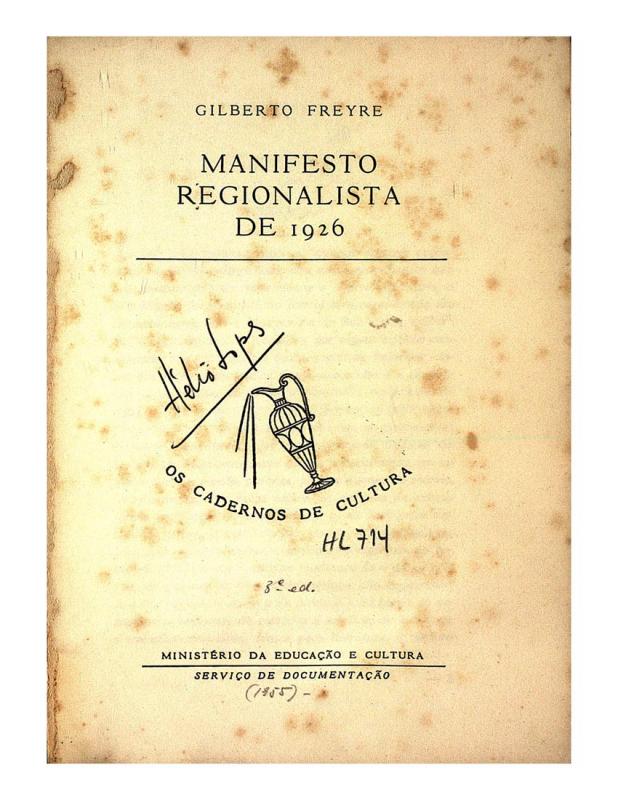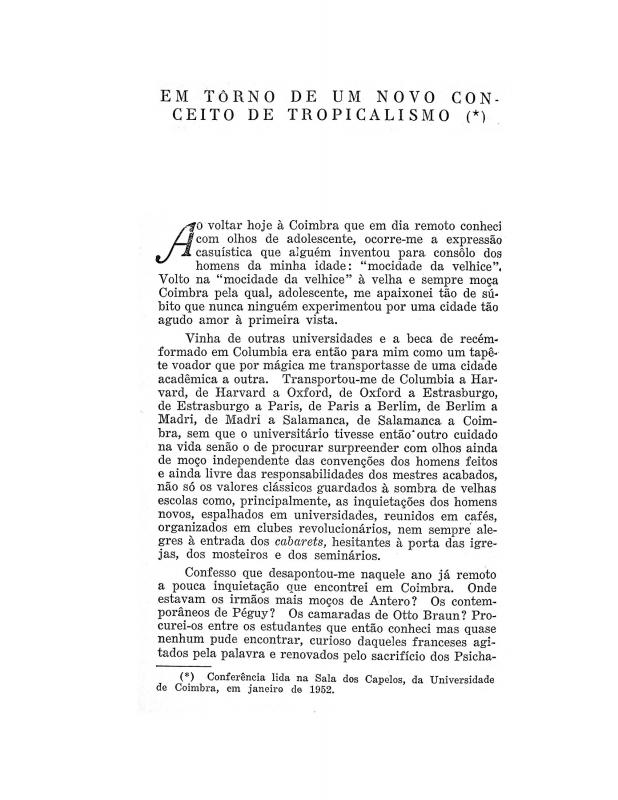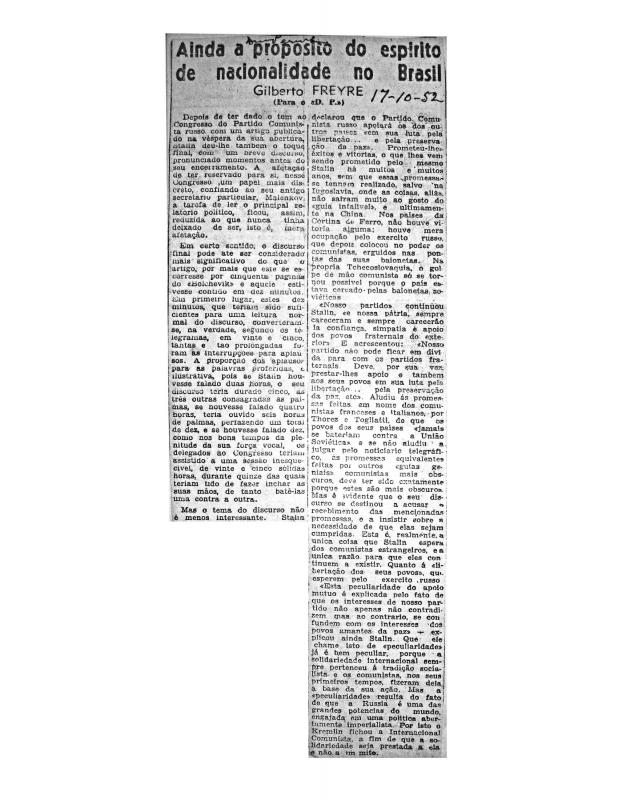Ever since the early days of his career, the sociologist, anthropologist, historian, writer, and journalist Gilberto [de Mello] Freyre (1900–87) was acutely aware of the vast geographical and cultural distances that separated his native region from the political and economic centers of the country, Rio de Janeiro and São Paulo. In 1926 he organized the “Primeiro Congresso Regionalista do Nordeste” in his home town, Recife—[see the manifesto in doc. no. 1074787]—which he used to promote aspects of the culture and habits of the northeastern region of Brazil. This was what prompted him to present his suggestions for a new definition of “tropicalismo” decades later in a lecture at the Faculdade de Letras de Coimbra (Portugal). He mentions the negative connotations that are usually ascribed to the term, which is used to mean loutish, messy, crude, and primitive, as distinct from the concept of “civilization” that is used to convey a sense of European refinement. On that subject, see “Em tôrno de um novo conceito de tropicalismo [doc. no. 1075041].
On the subject of identity, see by the same author “Ainda a proposito do espirito de nacionalidade do Brasil” [doc. no. 1075231]; as well as the concerns he shared with neighboring countries amid a rising tide of “continentalism”: the inter-American issues that led to an examination of Brazil’s problems in terms of neighboring countries vis-à-vis their similarities and their considerable differences.
In this article, Freyre discusses his thoughts on a form of “inter-Americanism” that does not exclude differences and that tolerates cultural alternatives. He warns against the uniformity of a kind of Pan-Americanism that is of a purely political nature and, naturally, is fostered by the United States. Freyre published his article in Argentina at the height of the Second World War, in La Nación, Buenos Aires, February 8, 1942.



